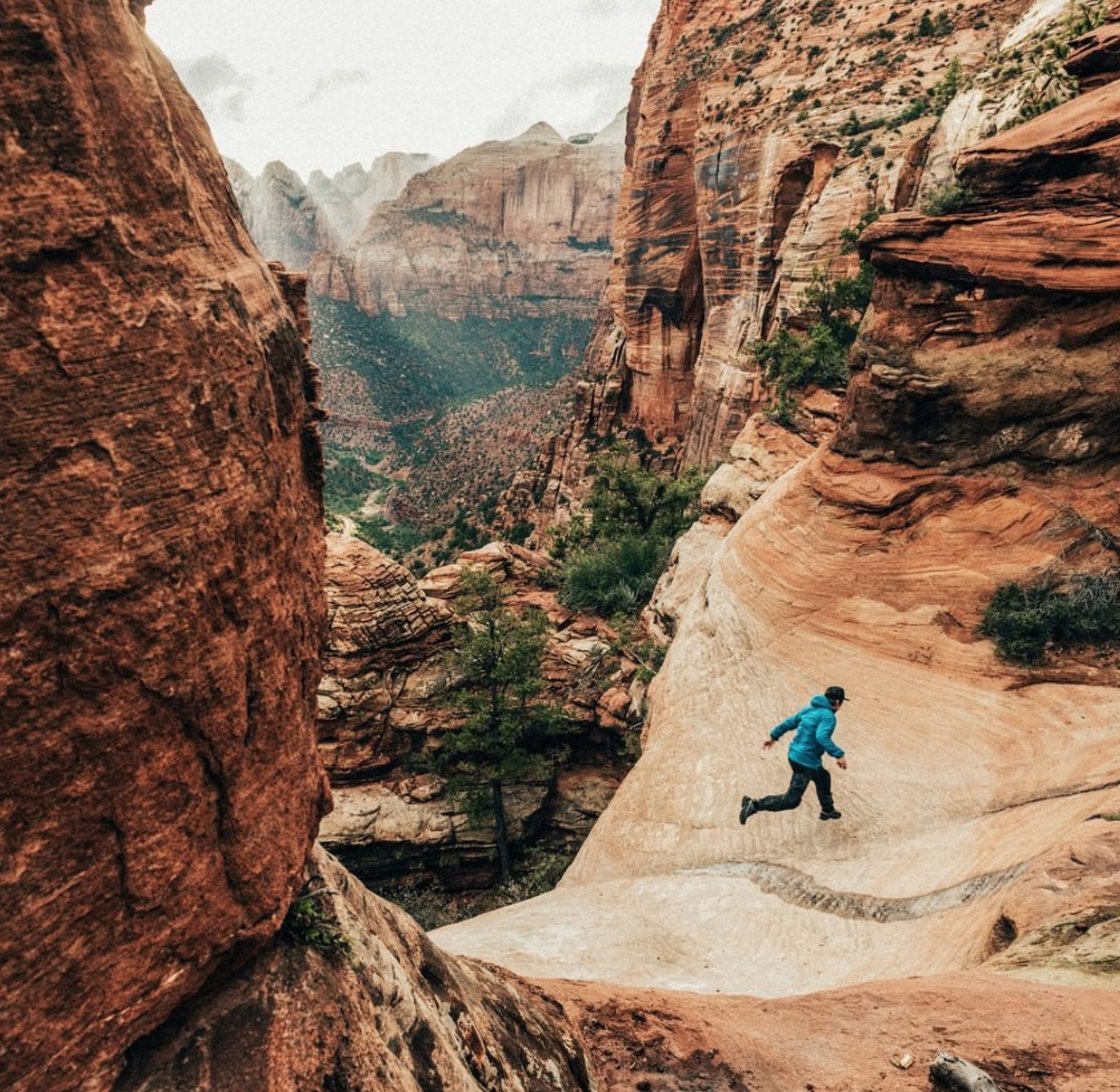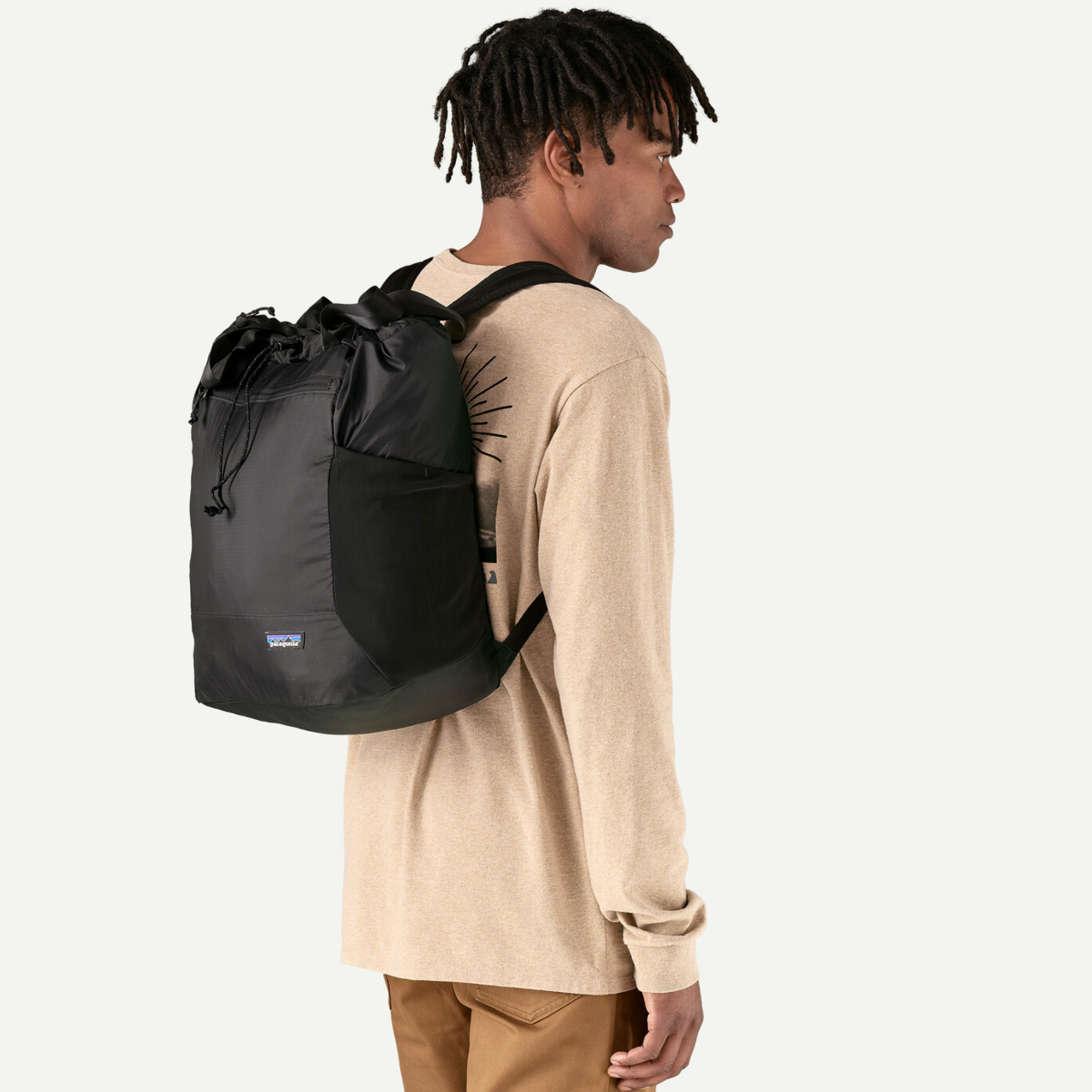Patagonia Ultralight Black Hole® Tote Pack 27l - Black
Sustainable Fair For a good cause
370 g
39 cm x 26 cm x 20 cm
27 l
68% of Patagonias fabrics this season are made with recycled materials.
Less than 10% of fibers produced globally are made with recycled materials.
-68 % der Stoffe von Patagonia diese saison werden aus recycelten Materialien hergestellt.
Weniger als 10% der weltweit produzierten Fasern werden aus recycelten Materialien hergestellt.
This versatile, 27-liter 100% recycled nylon tote
is lightweight, durable and can be carried by hand,
over the shoulder or as a backpack.
Fair Trade Certified™ sewn.
Features:
-Lightweight yet Strong 100% Recycled Fabric
-Lightweight recycled nylon ripstop is weather-resistant and highly packable
-Multiple Pockets for Gear Organization
-Main compartment has a large zippered opening for easy access
and a handy internal zip pocket (with a key keeper) for valuables;
an external zippered organizer holds everything you need close at hand
-Stretch Water-Bottle Pockets, Double stretch-mesh water-bottle pockets
-Comfortable Mesh Harness
-Adjustable, highly breathable mesh harness neatly tucks away when not in use
-Two Carrying Options, Can be carried as a tote or a backpack; volume is 27 liters
-Lightweight and Stuffable
-Stuffs into its own pocket
-Supporting the People Who Made This Product
-Fair Trade Certified™ sewn
-Weight: 370 g (13.05 oz)
Materials:
-Body: 2.4-oz 70-denier 100% postconsumer recycled nylon ripstop
with a silicone face coating and a PU back coating
-Lining: 3-oz 200-denier 100% recycled polyester with a PU coating
-Body fabric is certified as bluesign® approved
-Fair Trade Certified™ sewn
***
Diese leichte, robuste und multifunktionale 27-Liter Tasche
aus 100% Recycling-Nylon kann man mit der Hand,
an der Schulter oder als Rucksack tragen.
Fair Trade Certified™-konfektioniert.
Features:
-Leichtes und doch robustes 100% Recyclingmaterial
-Leichtes, solides Ripstop-Gewebe aus Recycling-Nylon, das wetterfest und sehr klein verpackbar ist
-Mehrere Taschen für gute Übersicht
-Das Hauptfach besitzt eine große Zipper-Öffnung für bequemen Zugang
und eine praktische Zipper-Innentasche für Wertsachen; ein Organisationsfach mit Zipper außen verwahrt Dinge,
die griffbereit sein sollen
-Stretch-Taschen für Trinkflaschen, Zwei Netztaschen für Trinkflaschen
-Bequemes Mesh-Tragesystem
-Verstellbares Tragesystem aus äußerst luftigem Mesh-Material, das sich verstauen lässt, wenn man es nicht braucht
-Zwei Trage-Optionen
-Kann als Tasche oder Rucksack getragen werden; Volumen 27 Liter
-Leicht und klein verpackbar
-Tasche lässt sich in einem ihrer Fächer verstauen
-Patagonia unterstützen die Menschen, die dieses Produkt herstellen
-Fair Trade Certified™-konfektioniert
-Gewicht:370 g
Materialien:
-Hauptmaterial: 488 g/m², 70-Denier Ripstopgewebe aus 100% Recycling-Nylon
mit Silikonbeschichtung außen und PU-Beschichtung innen
-Futter: 102 g/m², 200-Denier Gewebe aus 100% Recycling-Polyester mit PU-Beschichtung
-bluesign™-zertifiziertes Hauptmaterial
-Fair Trade Certified™-konfektioniert

Patagonia
Ende der Sechzigerjahre waren die Macher von Patagonia sie das Enfant Terrible der Outdoor Bekleidung. In einer Zeit, in der die ganze Branche Kleider in Naturfarben herstellte, arbeiteten sie mit intensiven Farben - bis heute ist das eines ihrer Markenzeichen. Patagonia ist ein Vorreiter der funktionellen Schichtenbekleidung. Als eine der ersten Marken haben sie Produkte aus Microfasern hergestellt. Sie sind experimentierfreudig geblieben und halten die Nase stetig vorn. Ein sehr wichtiger Aspekt ihres Konzepts ist außerdem die Ökologie. Sie sind umweltpolitisch aktiv. Alle ihre Baumwollartikel werden seit 1996 ausschließlich aus organischer Baumwolle hergestellt. Zurzeit tüfteln sie an Stoffverbindungen aus Hanf und recycliertem Polyester. Die natürliche Wahl.
(EN) "At Patagonia, we appreciate that all life on earth is under threat of extinction. We aim to use the resources we have—our business, our investments, our voice and our imaginations—to do something about it.
Patagonia grew out of a small company that made tools for climbers. Alpinism remains at the heart of a worldwide business that still makes clothes for climbing—as well as for skiing, snowboarding, surfing, fly fishing, mountain biking and trail running. These are silent sports. None require an engine; rarely do they deliver the cheers of a crowd. In each, reward comes in the form of hard-won grace and moments of connection with nature.
As the climate crisis deepens, we see a potential, even probable end to such moments, and so we’re fighting to save them. We donate our time, services and at least 1 percent of our sales to help hundreds of grassroots organizations all over the world so that they can remain vigilant, and protect what’s irreplaceable. At the same time, we know that we risk saving a tree only to lose the forest—a livable planet. As the loss of biodiversity, arable soils, coral reefs and fresh water all accelerate, we are doing our best to address the causes, and not just symptoms, of global warming.
Staying true to our core values during forty-plus years in business has helped us create a company we're proud to run and work for. To stay in business for at least forty more, we must defend the place we all call home.
Core Values
Our values reflect those of a business started by a band of climbers and surfers, and the minimalist style they promoted. The approach we take toward product design demonstrates a bias for simplicity and utility.
Build the best product
Our criteria for the best product rests on function, repairability, and, foremost, durability. Among the most direct ways we can limit ecological impacts is with goods that last for generations or can be recycled so the materials in them remain in use. Making the best product matters for saving the planet.
Cause no unnecessary harm
We know that our business activity—from lighting stores to dyeing shirts—is part of the problem. We work steadily to change our business practices and share what we’ve learned. But we recognize that this is not enough. We seek not only to do less harm, but more good.
Use business to protect nature
The challenges we face as a society require leadership. Once we identify a problem, we act. We embrace risk and act to protect and restore the stability, integrity and beauty of the web of life.
Not bound by convention
Our success—and much of the fun—lies in developing new ways to do things."

